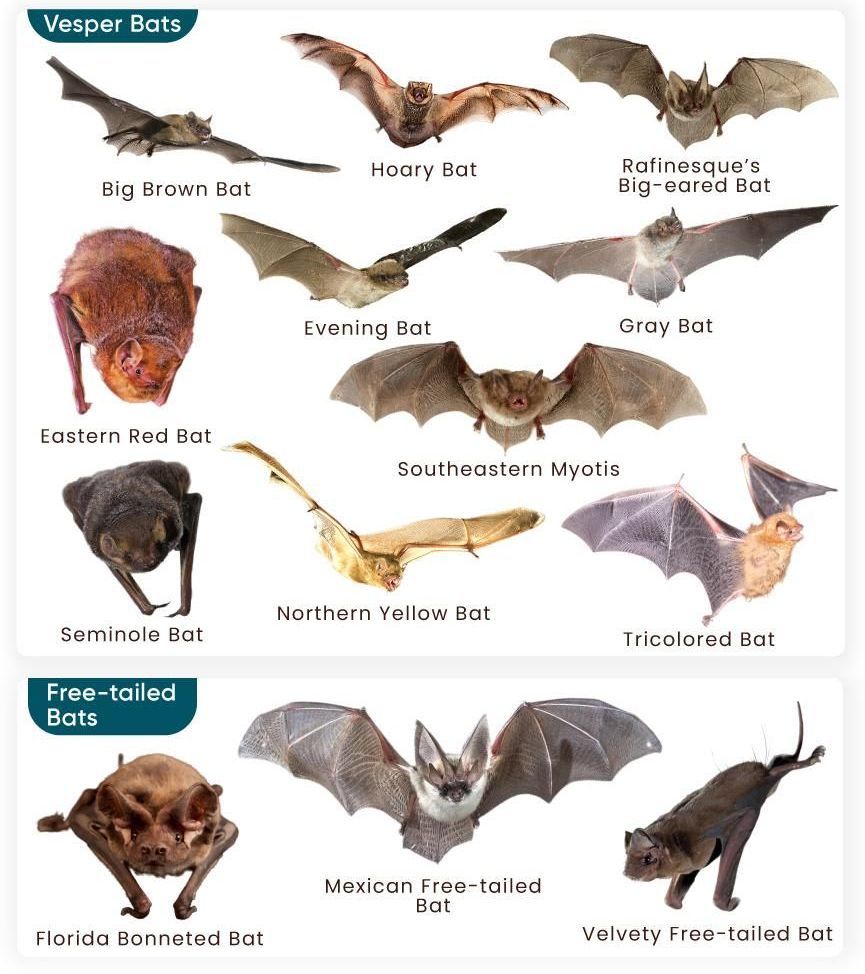bat species

Bats Of Florida
Florida is home to several species of bats, each playing unique ecological roles in the state's diverse ecosystems. Here are some notable bat species found in Florida:
- Brazilian Free-tailed Bat (Tadarida brasiliensis): This species is one of the most common bats in Florida. They are known for their fast and agile flight, often found in urban areas and natural habitats alike. Brazilian free-tailed bats roost in large colonies in caves, buildings, and sometimes bridges.
- Southeastern Myotis (Myotis austroriparius): Found primarily in the southeastern United States, including Florida, these bats prefer to roost near water bodies in trees, Spanish moss, or man-made structures. They are small bats with a wingspan of about 9-10 inches.
- Evening Bat (Nycticeius humeralis): These bats are distributed throughout the southeastern United States, including Florida. They typically roost in tree cavities, buildings, and bat houses. Evening bats are characterized by their large ears and reddish-brown fur.
- Northern Yellow Bat (Lasiurus intermedius): Although not exclusive to Florida, northern yellow bats can be found in the state's northern regions. They roost in trees and are recognized by their distinctive yellowish fur and long ears.
- Big Brown Bat (Eptesicus fuscus): This species is widely distributed across North America, including Florida. Big brown bats are adaptable and can be found roosting in buildings, caves, and trees. They are larger bats with a wingspan of up to 13 inches.
- Florida Bonneted Bat (Eumops floridanus): This is an endangered species of bat endemic to southern Florida. They prefer to roost in tree hollows and are characterized by their large size and distinctive "bonnet" shaped nose.
- Northern Long-eared Bat (Myotis septentrionalis): Found across much of the eastern United States, including parts of Florida, this bat species prefers forested habitats. They roost in tree cavities and are known for their long ears and brown fur.
These are just a few examples of the bat species found in Florida. Bats play important ecological roles in controlling insect populations and pollinating plants, making them valuable contributors to the state's biodiversity.
600 Cleveland Street
suite 374

